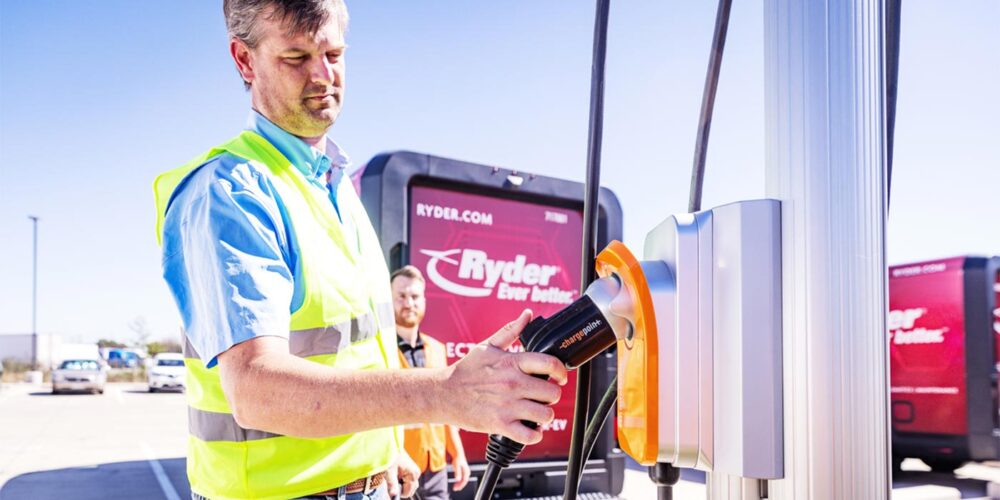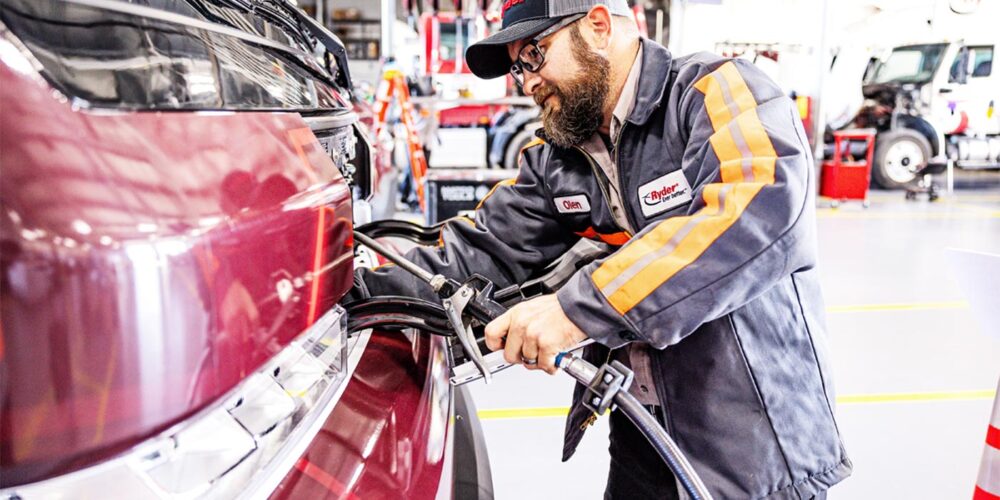In any case, the truck rental and leasing industry is at the forefront of deploying electric vehicles. Uniquely suited to keeping and maintaining EVs, rental and leasing businesses are using their extensive networks to bring an increasing number of vehicles to a wide range of truck users.
At Ryder System, Inc. A major step in the company’s efforts to meet the growing demand for and adoption of electric commercial vehicles came with the announcement that it will be adding 4,000 General Motors BrightDrop Zevo 600 and Zevo 400 vehicles for lease and rental. fleet until 2025. Early models of the Zevo 600 are now in use at four facilities in California, Texas and New York.
“Ryder is at the forefront of identifying and testing advanced and emerging vehicle technologies, including the new BrightDrop EVs,” said Angie Hargesheimer, Ryder’s group account director – advanced vehicle technology. “Through our strategic relationships with technology providers and equipment manufacturers, we can provide commercial fleet solutions that drive sustainability and help meet their operational goals.”
The BrightDrop Zevo 600 and Zevo 400 electric appliances have a range of up to 250 miles on a full charge. Developed by a recently owned subsidiary of General Motors, the EVs are powered by GM’s Ultium battery and all-electric propulsion system.
Zevo models have 9,990- or 11,000-lb. GVWR. The Zevo 400 has a 153-inch wheelbase, 1,800-lb.-plus payload capacity and 412 cu. ft. of cargo space. The Zevo 600 has a volume of 615 cubic feet and a 1,460-lb.-plus payload of 183 in. wheelbase.
Along with BrightDrop Zevos, Ryder’s lease and rental fleet includes Ford E-Transits, International eMV Series trucks, Lonestar (recently acquired by Kalmar) EVs with Dana electric powertrain, and Freightliner MT50e, eM2 and models of eCascadia. The company has also stocked Tesla Semi tractors and continues to work with many OEMs to source new EV models.
For its growing fleet of BrightDrop electric vehicles, Ryder is installing charging infrastructure at its stations from ChargePoint and InCharge, providers of online hardware and software for charging EVs, and public charging stations.
Turnkey EV fleet solution
“Ryder’s goal is to continue to evaluate and provide advanced vehicle technology solutions to help customers integrate EVs into their businesses,” Hargesheimer said. “That effort is centered on RyderElectric+, a new EV fleet solution that helps customers navigate the EV landscape by serving as a central source of vehicle and fleet management services.”
Hargesheimer says that RyderElectric+ partners with customers throughout the entire fleet electrification journey. Its electrification consultants provide financing, vehicle leasing and leasing, charging and facility infrastructure solutions, and telematics and maintenance software for commercial EVs.
RyderElectric+ program electrification consultants help customers assess vehicle suitability, estimate carbon emissions reductions, and overall cost impact, assess charging service needs, provide guidance on the availability of potential subsidies, and on creating a transition map of EV. The solution also provides access to Ryder’s inventory of electric vehicles as well as the company’s national maintenance footprint, 24/7 emergency roadside assistance, telematics for fleet awareness, and EV chargers in select locations, Ryder said. .
“Our goal is to help make the integration of electric vehicles as seamless as possible for our customers through one service provider at one cost,” Hargesheimer said. “By combining our expertise, consulting services and relationships with car manufacturers and charging companies, as well as our partnerships with telematics service providers, we help companies build and maintain an electric fleet that meets their needs.
“Ryder’s commitment to responsible corporate citizenship extends into every aspect of its business,” Hargesheimer added. “As demand for and adoption of commercial EVs continues to grow in the transportation and logistics industries, we aim to provide our customers with an end-to-end solution for zero-emission commercial fleet deployment.”



























